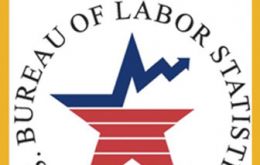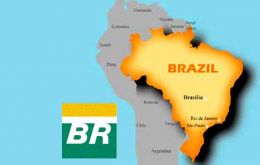MercoPress. South Atlantic News Agency
Economy
-
Tuesday, August 11th 2015 - 08:18 UTC
China devalues the currency in support of its struggling export sector

China has moved aggressively to devalue its currency in a bid to support its struggling export sector as the economy shows further signs of weakness on the way to reporting its slowest annual pace of growth in 25 years. The People's Bank of China surprised the market on Tuesday weakening the fix on its daily reference rate for the Yuan by a record 1.9%.
-
Tuesday, August 11th 2015 - 07:55 UTC
Argentina wins a battle in its ongoing struggle with hedge funds

Argentina on Monday won a battle in its ongoing struggle with hedge funds holding sovereign bonds. In this case Argentina managed the reversal of a U.S. judge's ruling that a group of bondholders suing over its defaulted debt said entitled them to $700 million.
-
Tuesday, August 11th 2015 - 07:32 UTC
Falklands' GDP dropped in 2013 because of lesser oil and gas activity

The Falkland Islands Gross Domestic Product (GDP) dropped in 2013 primarily due to lesser oil activity according to a recent Executive Council paper that included updated figures from the FIG Economist Commenting on the paper, according to a report from the latest edition of the Penguin News.
-
Tuesday, August 11th 2015 - 07:18 UTC
State of emergency in north of Chile because of torrential rain and floods

A state of emergency has been declared by the Chilean government in the northern cities of Antofagasta and Tocopilla due to the strong winds, heavy rains, flashfloods and mudslides. President Michelle Bachelet visited the north on Monday to observe first-hand the damage caused by a storm that left six people dead nationwide.
-
Tuesday, August 11th 2015 - 07:14 UTC
Argentina will service 3.5bn dollars maturing next October with bank reserves

Argentina confirmed it will be using Central Bank foreign-currency reserves to service more than US$3.5 billion dollars in international debt that matures in October. The confirmation came through an announcement in the Official Gazette, signed by President Cristina Fernández, Cabinet Chief Anibal Fernández and Economy Minister Axel Kicillof.
-
Monday, August 10th 2015 - 07:00 UTC
Dairy and vegetable oils prices help FAO's July food index reach its lowest since 2009

Prices for major food commodities in July hit their lowest average monthly level since September 2009 as sharp drops in the prices of dairy products and vegetable oils more than offset some increases for those of sugar and cereals. Meat prices, meanwhile, remained stable.
-
Monday, August 10th 2015 - 06:46 UTC
Global oil supply more fragile than you think

Many oil companies had trimmed their budgets heading into 2015 to deal with lower oil prices. But the rebound in April and May to $60 per barrel from the mid-$40s suggested that the severe drop was merely temporary.
-
Monday, August 10th 2015 - 06:05 UTC
Scotland to ban growing genetically modified crops

Scotland is to ban the growing of genetically modified crops, the country's rural affairs secretary has announced. Richard Lochhead said the Scottish government was not prepared to “gamble” with the future of the country's £14bn food and drink sector.
-
Sunday, August 9th 2015 - 14:55 UTC
US economy adds 215.000 jobs in July; unemployment at seven-year-low of 5.3%

The US economy added 215,000 jobs in July, while the unemployment rate held at a seven-year-low of 5.3%. The Bureau of Labor Statistics said on Friday job gains came in retail trade, health care, professional and technical services, and financial activities.
-
Saturday, August 8th 2015 - 10:42 UTC
Petrobras profits plunge 89% in 2Q; underperforming assets dumped

Brazilian state-led oil company Petrobras said its second-quarter net income plunged 89% after a one-time charge for underperforming assets that caught analysts off guard. The 1.28-billion-real charge was taken as Petrobras' new executives and board of directors try to control the company's $132 billion debt, the oil-industry's largest, by preparing up to $15bn of assets for sale by the end of 2016.
